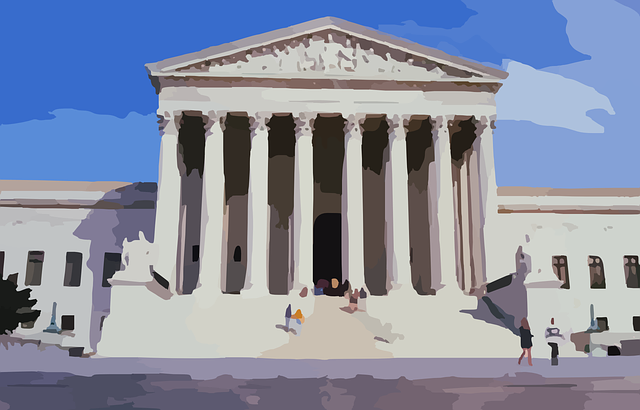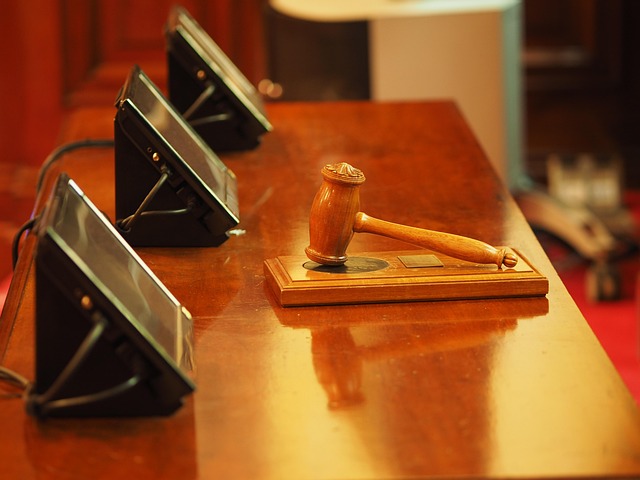Whistleblower Protection Lawsuits are legal actions by individuals exposing illegal or unethical activities within organizations, governed by government regulations and criminal procedure law frameworks. These lawsuits aim to protect whistleblowers from retaliation, compensate them for losses, deter corporate white-collar and economic crimes, and set precedents for accountability. Understanding Criminal Procedure Law Basics is crucial in these cases, as they navigate complex evidence gathering, legal analysis, and strategic defense approaches to ensure fairness and protect public interest.
“Uncover the intricate world of Whistleblower Protection Lawsuits, where individuals dare to expose illegal activities within their organizations. This comprehensive guide navigates the complex landscape, offering insights into the definition, key players, and legal framework that underpin these pivotal cases.
From understanding criminal procedure law basics relevant to whistleblowers to exploring the challenges and defenses, this article demystifies the process. Learn about the steps involved in filing and pursuing such lawsuits, empowering you with knowledge of both the rights of whistleblowers and the strategies employed by defendants to protect themselves.”
- Definition of Whistleblower Protection Lawsuits
- – Understanding the concept and purpose
- – Key players involved in a whistleblower lawsuit
Definition of Whistleblower Protection Lawsuits

Whistleblower Protection Lawsuits are legal actions initiated by individuals who expose illegal or unethical activities within an organization, often involving public interest and government regulations. These lawsuits are designed to safeguard whistleblowers from potential retaliation, such as termination, harassment, or unfair treatment, when they come forward with crucial information. Understanding Criminal Procedure Law basics is essential here, as these cases navigate complex legal frameworks to ensure the rights of both the whistleblower and the accused organization are protected.
The primary goal of these protection lawsuits is not only to compensate the whistleblower for any losses suffered but also to deter companies from engaging in white-collar and economic crimes. By achieving extraordinary results through winning challenging defense verdicts, these cases set precedents that can shape corporate behavior and foster a culture of accountability. This process involves meticulous evidence gathering, thorough legal analysis, and strategic advocacy to ensure the whistleblower’s message is heard and acted upon.
– Understanding the concept and purpose

Whistleblower Protection Lawsuits are a critical aspect of understanding criminal procedure law basics, particularly when it comes to addressing white collar and economic crimes. The primary purpose of these lawsuits is to empower individuals who expose illegal activities within organizations or governments, protecting them from potential retaliation. By providing legal recourse for whistleblowers, these laws encourage the exposure of fraud, corruption, and other malicious practices that harm the public interest.
In high-stakes cases involving complex financial crimes, whistleblower protection can offer a measure of security for those who come forward with critical information. This legal framework is designed to ensure that whistleblowers are not faced with severe consequences, such as job loss or personal harm, for their actions. As a result, it facilitates the complete dismissal of all charges against them in some instances, allowing them to expose wrongdoing without fear of reprisal.
– Key players involved in a whistleblower lawsuit

In whistleblower protection lawsuits, several key players are integral to navigating the complex landscape of understanding criminal procedure law basics. Firstly, the whistleblower—often an employee or insider—is central to initiating legal action by disclosing information they believe shows illegal activity within their organization. This disclosure is a critical step in the process and forms the basis for subsequent legal proceedings.
Next, corporate and individual defendants face high-stakes cases where their reputations and financial stability are on the line. Understanding Criminal Procedure Law Basics is essential for both sides as it dictates how evidence is gathered, presented, and challenged. Winning challenging defense verdicts often hinges on sophisticated legal strategies that account for these procedural nuances, ensuring a fair and just outcome in what can be emotionally charged and publicly scrutinized situations.
Whistleblower Protection Lawsuits, an essential component of understanding criminal procedure law basics, empower individuals to expose illegal activities within organizations. By utilizing these legal mechanisms, whistleblowers can hold entities and individuals accountable while safeguarding their own rights. Navigating the complexities of such lawsuits requires a deep grasp of both criminal law principles and the unique dynamics involved in these cases, ensuring justice for all parties concerned.






